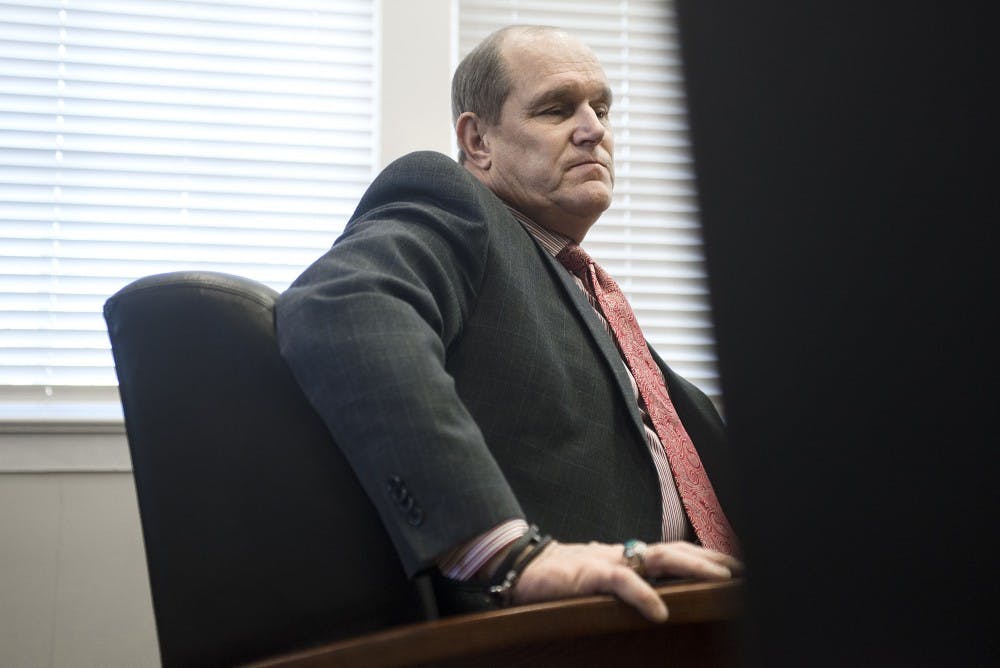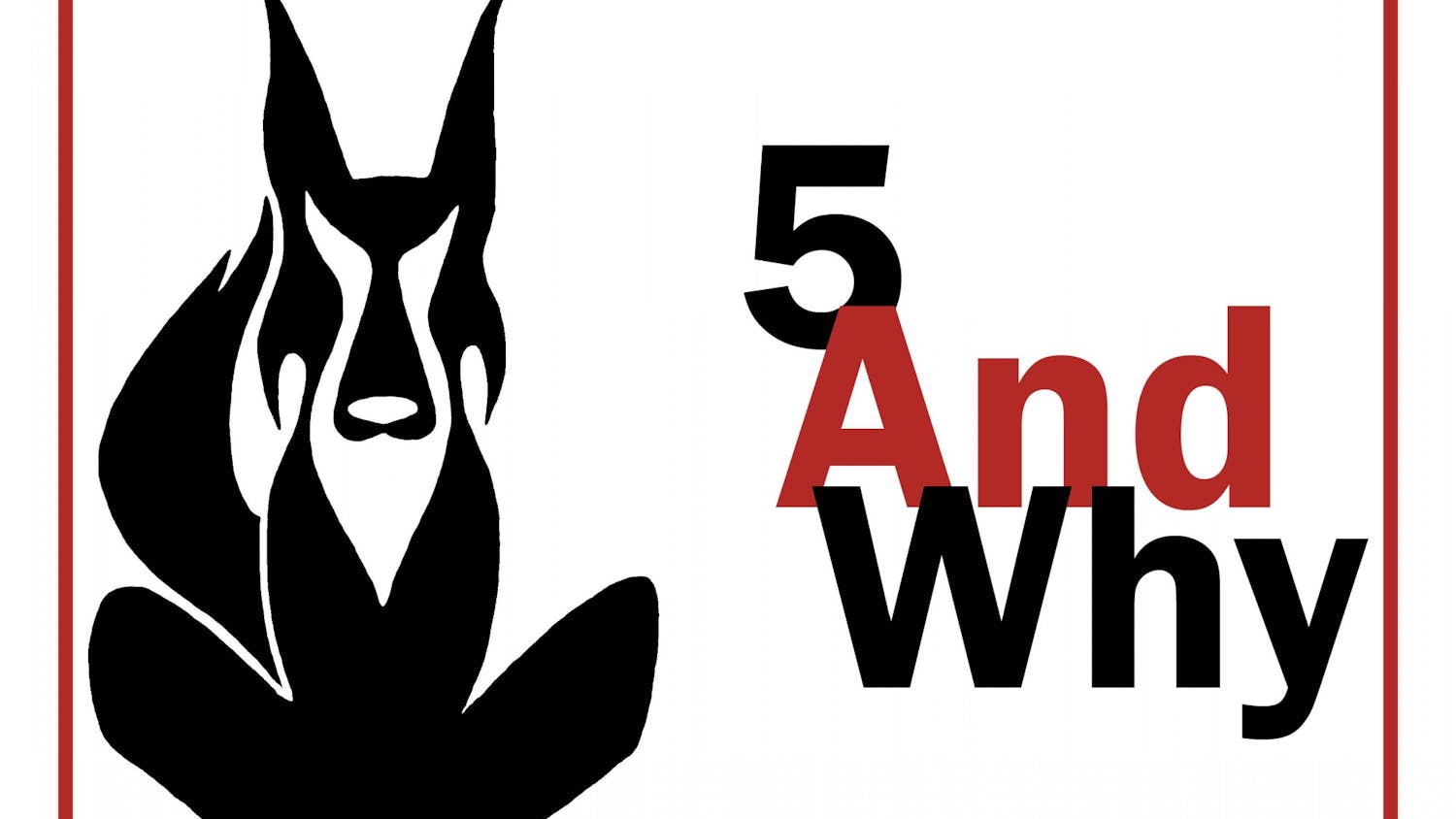news@dailylobo.com
@ArdeeTheJourno
As this year’s state legislative session ended Thursday, lawmakers passed Senate Bill 347 to prevent the Legislative Lottery Scholarship from expiring at the end of this fiscal year.
Sponsored by Sen. Michael Sanchez, D-Belen, SB 347 would use money from the state’s liquor excise tax to fund the Scholarship over the next two years. The bill will also keep the Scholarship’s GPA requirement at 2.5 but will raise its credit-hour requirement from 12 to 15 credit hours. In the case of insufficient funds, the state will be able to pro-rate scholarship amounts among students of all year levels.
The bill is currently awaiting Gov. Susana Martinez’s signature.
The Daily Lobo spoke with UNM President Robert Frank on Friday about his impression of SB 347 and how it might affect students in the future.
Daily Lobo: How do you feel about the passage of SB 347?
Robert Frank: That’s great for our students. At the end of the day, the most important thing is that (the Scholarship) exists, that it’s solvent, that it will be here for next year’s class. The form that it passed in, I think, is going to be good for UNM students … Some students would have preferred the hours not to go up, and I think they could make a pretty good case for that. But that’s what the Legislature decided. The most important thing is that it’s there and it’s funded. I would have preferred to see the GPA go higher and the hours stay down if I had written a prescription. At the end of the day, I’m thankful for the Legislature.
DL: There are many aspects to this bill. First, there are the liquor tax revenues that would fund the Scholarship. How do you feel about that?
RF: I’m just glad they found a source to fund it. They’re going to have to take the money from something. That’s as good a source as anything. I don’t know if I have any profound insight on it.
DL: The other aspect is that the GPA requirement wouldn’t increase. How do you feel about that? I know in the past you’ve said that you were in support of increasing the GPA, correct?
RF: Only because the GPA is the best predictor of success in college. If I had my way, I would have found a way to keep it going just as it was, but it was clear that something was going to change. I told you a second ago, I would have kept the hours lower and increased the GPA, so I would have done it the other way. But it is the way it is.
DL: Initially this bill aimed to pro-rate the amounts for juniors and seniors, so freshmen and sophomores would have been guaranteed full-tuition amounts, and juniors and seniors would have take the cut in case of insufficient funds. Were you in support of that or were you in favor of the amendment?
Get content from The Daily Lobo delivered to your inbox
RF: If we had to fund anybody, it’s best to fund those first two years because once students begin, they’re more likely to graduate. We would like to push students into the pipeline because we know they’re going to go on and graduate. My model is that let’s stick with all the things that predict graduation. I’m OK with the way it turned out, but if I had to make a choice, I would have focused on what’s making freshmen and sophomores moving toward graduation. Juniors and seniors are more likely to scrape the money together and find a way.
DL: The final aspect, and the one that may affect the highest number of students, is the increase of the credit-hour requirement. How do you feel about that?
RF: I worry about the students who are working and trying to balance their load. I know of some students for whom it would be a hardship, and we’ll have to look at that and try to analyze that and give some thought on how to handle financial aid for those students … It’s so new that I don’t have analysis on that yet. But we’ll look and we’ll get some input. But we know that the more credit hours students take, the faster they get through college.
DL: Do you think it goes in line with the recent move by the University to make it cheaper for students to take 15 to 18 credit hours instead of 12?
RF: It does match that engagement concept that the more students are committed to college, the better they do here. Partially, dabbling through college doesn’t get you through here. That’s one thing we know, that the more students really focus, the faster they get out of here and do better. The dabblers struggle more. It’s really good for students to stay engaged, and that’s a great predictor of student success.
DL: So you’re saying that raising the credit-hour requirement would push students harder?
RF: It pushes engagement. Engagement is a predictor of student success … We have to be really careful when we think about this. It’s not that we want to make this harder for you. What we want is that students focus on being here and getting their education done. It’s not about making it harder for students but about getting here and getting what you came here for. It’s that concept of engagement that’s critical.
DL: I spoke to Associated Students of the University of New Mexico President Isaac Romero, and one of the points that he brought up (was that) science, technology, engineering and mathematics students might have some hardships. Most of them just take 12, 13 or 14 credit hours. Do you think this increase would disadvantage them?
RF: I don’t know. I’ll ask Vice President (Terry) Babbitt about his thoughts on this issue. He’s the expert on that, and once he gives us his input, we’ll look at it … If some students have extraordinary circumstances, that’s what we have to take into consideration.
We have to ask about how many students take fewer than 15 credit hours because of the work load versus how many students take less because that’s what they want. In the past, we’ve surveyed students, and we found that there’s a discrepancy between what students say and what they’re actually doing. We need to get more data on that.
DL: Do you expect this bill to go smoothly in the near future?
RF: We’ll be back in this discussion before long. It’s likely that the governor would support it because she wants to support the next year, but it’s clearly not a long-term solution.
DL: Do you expect legislators to be able to find a permanent solution to preserve the Scholarship?
RF: I doubt we’ll find a permanent solution because it’s expensive and it’s hard to find a permanent solution to that. But I think we’ll continue to find solutions because it’s a very popular piece of legislation. New Mexicans like it, and it’s very important to us, so we’ll continue to find ways to do it. It won’t go away.






